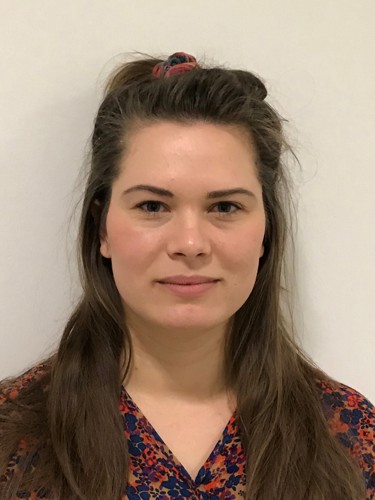Katrine Holtz Thorhauge
Department of Gastroenterology

Biomarkers and patient characteristics to predict changes in alcohol-related liver disease over time
It is estimated that approximately 15% of the European adult population drink in excess, which can lead to severe liver disease characterized by a stiff liver due to scar-tissue called fibrosis. Accumulation of fibrosis can over time lead to cirrhosis and limit the functions of the liver, which can cause fetal complications; infections, gastrointestinal bleedings, cancer and cognitive dysfunction.
Fibrosis and early cirrhosis is asymptomatic and is usually not detected before the patient suffers from complications, due to the standard liver function tests being insufficient at detecting and monitoring non-acute liver damage, which characterizes the disease progression of alcohol-related liver disease. Fortunately, it is far from everyone who drinks in excess who develops severe fibrosis and cirrhosis, however with nowadays knowledge and tools it is impossible to foresee who will.
It is known that fibrosis is driven by an interplay of factors; alcohol intake, overweight, diabetes type 2 and moreover it is has been found that genetics and the microbiome also play a crucial role in the disease development and progression. However this interplay have not been fully investigated and there is no existing longitudinal data upon non-hospitalized patients at risk of alcohol-related liver disease, thus no existing official guidelines on how to monitor and prognosticate these patients in primary care. Consequently 75% of patients with alcohol-related liver cirrhosis are diagnosed at the time of severe complications. Therefore there is an urgent need of describing the natural history of alcohol-related liver disease in order to develop treatment regimens, tools for disease monitoring and prognostication, as well as effectively communicate with at-risk patients.
The purpose of this project is to collect longitudinal data from 463 patients at risk of alcohol-related liver disease in order to investigate the long term dynamics in alcohol-related liver disease and improve patient care. Patients have been included in year 2013-2018 and will, as part of this project, be recalled for a follow-up visit 1-8 years after inclusion including extensive liver- and health investigations. These data combined with longitudinal data on lifestyle and comorbidities will make it possible to investigate if new biomarkers can detect signs of ongoing scar-tissue formation and hereby monitor and prognosticate disease progression. We will also investigate which patient characteristics that play a role in the disease progression and regression in order to detect potential disease predictors.
With these data it will be possible to stratify patients into high-risk and low-risk for progressive liver disease. This will make it possible to individualize clinical control programs and improve referral of the right patients at the right time for further investigations at specialized departments. Furthermore data from this study will provide highly relevant knowledge about alcohol-related liver disease, which is fundamental for coordinating new studies, develop treatments as well as for informing and communicating with both patients and relatives.
The study will be carried out at the Liver Research Centre at Odense University Hospital of Southern Denmark. The Liver Research Center was established to develop effective non-invasive diagnostic tools of liver disease, improve prognostic knowledge about fibrosis, fatty liver and steatohepatitis as well as increase the scarce treatment options. Our team consists of a large group of trained doctors, nurses and medical students and our set-up allow us to investigate multiple patients every day. Finally, I have personally prepared and set-up this project in close collaboration with my supervisors during the last 2 years and all official permissions has been granted. So far 72 patients have already been recalled since January 2019 and patients express a great interest in participating.
